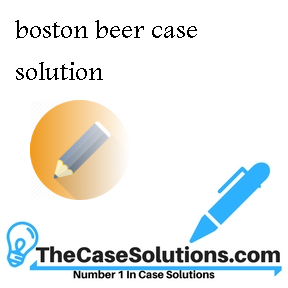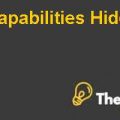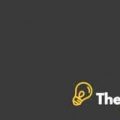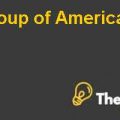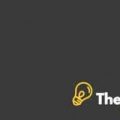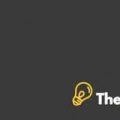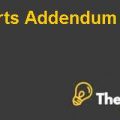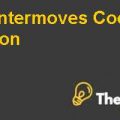Discounted Cash Flow Technique:
The discounted cash flow method is used for valuation of the project on a present value basis. The cash flows of the project are calculated and discounted by the weighted average cost of equity to calculate the present value of the cash flows. Free cash flows of Boston Beer Company are calculated by adding back all the non cash expenses that are amortization and depreciation, and changes in working capital and capital expenditure to the net income of the company. The cost of equity is used as the discount rate to discount the cash flows. Cost of equity is calculated by using the capital asset pricing model. Few assumptions of the capital asset pricing model to be undertaken which is, risk free rate of return is assumed to be 5.35 percent, beta is assumed to be 1 and the average market risk premium is assumed to be 5 percent. There are certain limitations and assumptions of the capital asset pricing model (CAPM) that is investor would have the diversified portfolio, investors can invest its investment at risk free rate of return, market is totally perfect and market premium remain same throughout the decision. The cost of equity using the formula of the capital asset pricing model is 10.35 percent.
Assumptions:
All the assumptions are taken on an average basis from year 1992 to 1995 as the percentage of sales. All the assumptions taken for calculation of discounted free cash flow are mentioned in Exhibit 5.
The present value of free cash flows of Boston Beer Company is $31,253 and the present value of terminal value is $92,905 and per share enterprise value of Boston Beer Company is $6.79. As shown in exhibit 3.
Multiple Valuation Technique:
The multiple Valuation technique is used to calculate the enterprise value per share. Boston Beer Company per share price can be calculated by using different multiples, that is sales multiples, earnings before interest, tax, amortization and depreciation (EBITDA) multiple or net earning multiple. Sales, EBITDA and EAT per share price is calculated by dividing the enterprise value with the value of sales, EBITDA and EAT. The per share value of using the sales multiple is $0.14 by the end of year 2000. The per share value of Boston Beer Company in earnings before interest, tax amortization and depreciation (EBITDA) multiple is $2.39. Per share value using the earnings is $5.47. All these calculations are shown in exhibit 4.
APPENDICES:
EXHIBIT 1:
|
Pete's Brewing |
Red hooks Ale |
Average |
|
| Stock Price |
24.75 |
27.00 |
25.88 |
| Price Earnings Ratio |
100 |
36 |
68 |
|
INTRINSIC VALUE |
|||
|
Price Earnings Ratio |
68 |
||
|
Earnings Per Share |
$0.26 |
||
|
Value Per Share |
$17.68 |
||
EXHIBIT 2:
|
SENSITIVITY ANALYSIS |
|||
|
Nine Months Ended |
|||
|
September 30, |
|||
|
1995 |
1995 |
1995 |
|
|
10% |
-10% |
||
| Sales |
121,895 |
134,085 |
109,706 |
| Less excise taxes |
12,990 |
14,289 |
11,691 |
| Net sales |
108,905 |
119,796 |
98,015 |
| Cost of goods sold |
51,615 |
56,777 |
46,454 |
| Gross profit |
57,290 |
63,019 |
51,561 |
| Advertising, promotional and selling | |||
| Expenses |
43,408 |
47,749 |
39,067 |
| General and administrative expenses |
5,455 |
5,455 |
5,455 |
| Total operating expenses |
48,863 |
53,204 |
44,522 |
| Operating income |
8,427 |
9,815 |
7,039 |
| Gross Profit To Sales Ratio |
6.91% |
7.32% |
6.42% |
| Increase/Decrease in EBIT |
16.47% |
-16.47% |
|
EXHIBIT # 03
|
FORCASTED DISCOUNTED FREE CASH FLOW |
||||||
|
1996 |
1997 |
1998 |
1999 |
2000 |
||
| Revenues |
227,537 |
318,552 |
445,973 |
624,362 |
874,107 |
|
| Less: Excise Taxes |
25,182 |
35,255 |
49,357 |
69,099 |
96,739 |
|
| Net Sales |
202,355 |
283,298 |
396,617 |
555,263 |
777,369 |
|
| Cost of Sales |
94,586 |
132,420 |
185,388 |
259,543 |
363,360 |
|
| Gross profit |
107,770 |
150,878 |
211,229 |
295,720 |
414,008 |
|
| Advertising and selling expense |
84,966 |
118,952 |
166,533 |
233,147 |
326,406 |
|
| General and Administrative |
11,811 |
16,536 |
23,150 |
32,410 |
45,374 |
|
| Total Oprating Expense |
96,777 |
135,488 |
189,683 |
265,556 |
371,779 |
|
| Income (loss) from operations |
10,993 |
15,390 |
21,545 |
30,164 |
42,229 |
|
| Other Income (expense) |
1 |
2 |
3 |
4 |
5 |
|
| Interest Income |
676 |
947 |
1,326 |
1,856 |
2,598 |
|
| Interest Expense |
(602) |
(843) |
(1,180) |
(1,652) |
(2,312) |
|
| Other Net |
270 |
378 |
529 |
740 |
1,036 |
|
| Total Other Income |
344 |
482 |
675 |
944 |
1,322 |
|
| Net Income |
11,337 |
15,871 |
22,220 |
31,108 |
43,551 |
|
| Tax Expense |
5,423 |
7,592 |
10,629 |
14,881 |
20,833 |
|
| Earning after Tax |
5,914 |
8,279 |
11,591 |
16,227 |
22,718 |
|
| Depreciation |
1,597 |
2,236 |
3,130 |
4,382 |
6,135 |
|
| Net Change in working capital |
(974) |
(1,364) |
(1,909) |
(2,673) |
(3,742) |
|
| Net Change in capital expenditure |
(2,485) |
(3,479) |
(4,870) |
(6,818) |
(9,545) |
|
| Free Cashflow |
4,052 |
5,673 |
7,942 |
11,119 |
15,566 |
|
| Discount Rate |
0.9062 |
0.8212 |
0.7442 |
0.6744 |
0.6111 |
|
| Present Value Of Free Cash flow |
3,672 |
4,659 |
5,910 |
7,498 |
9,513 |
|
..........................................
This is just a sample partial case solution. Please place the order on the website to order your own originally done case solution

